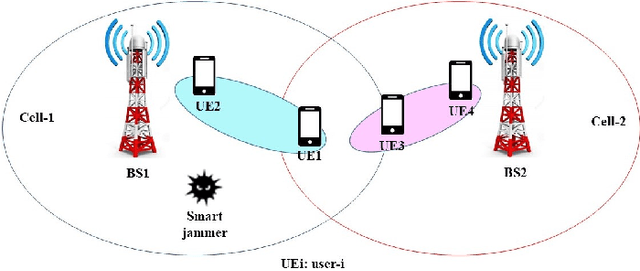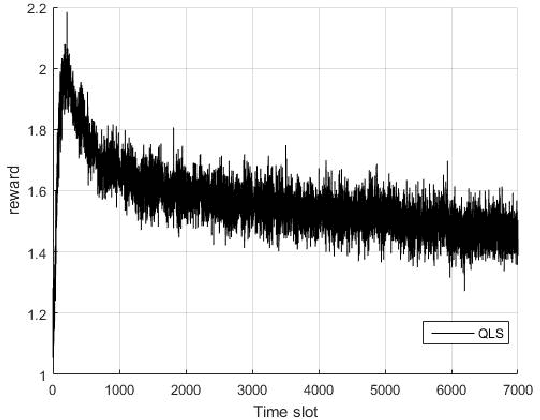Deep Reinforcement Learning-based Anti-jamming Power Allocation in a Two-cell NOMA Network
Paper and Code
Jan 01, 2021



The performance of Non-orthogonal Multiple Access (NOMA) system dramatically decreases in the presence of inter-cell interference. This condition gets more challenging if a smart jammer is interacting in a network. In this paper, the NOMA power allocation of two independent Base Stations (BSs) against a smart jammer is, modeled as a sequential game. In this game, at first, each BS as a leader independently chooses its power allocation strategy. Then, the smart jammer as the follower selects its optimal strategy based on the strategies of the BSs. The solutions of this game are, derived under different conditions. Based on the game-theoretical analysis, three new schemes are proposed for anti-jamming NOMA power allocation in a two-cell scenario called a) Q-Learning based Unselfish (QLU) NOMA power allocation scheme, b) Deep Q-Learning based Unselfish (DQLU) NOMA power allocation scheme, and c) Hot Booting Deep Q-Learning based Unselfish (HBDQLU) NOMA power allocation scheme. In these methods the BSs do not coordinate with each other. But our analysis theoretically predicts that with high probability, the proposed methods will converge to the optimal strategy from the total network point of view. Simulation results show the convergence of the proposed schemes and also their outperformance with respect to the Q-Learning-based Selfish (QLS) NOMA power allocation method.
 Add to Chrome
Add to Chrome Add to Firefox
Add to Firefox Add to Edge
Add to Edge